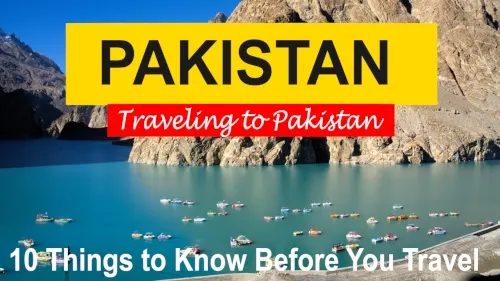
We recently returned from a tour of Pakistan and were blown away by the stunning scenery. The snow-capped mountains, the merging of rivers, and the beautiful autumn landscape were truly breathtaking. Here are the 10 things to know before traveling to Pakistan, especially if you are a first-time traveler.
In this article, I will provide the basic answer to some common questions that first-time travelers will ask in Pakistan. This is by no means a comprehensive guide, But instead, it is based on what we observed and experienced when we were there during our 12-day holidays.
1. How is the hotel condition in Pakistan?
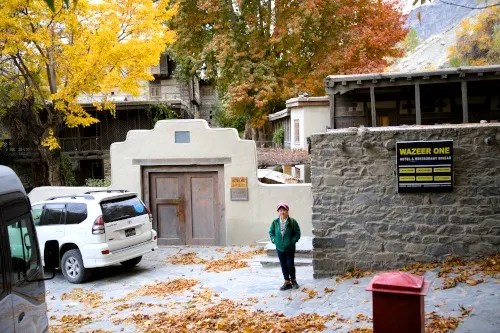
We stayed at different hotels during our trip to Islamabad, Hunza, Skardu, Gilgit, and Chilas. We joined a group tour that provided some of the best hotels, so our experiences may include something other than budget options that backpackers or budget travelers may be interested in. However, suppose you're a casual traveler like me. This information will be valuable as it provides a glimpse of what to expect if you join a group tour organized by a travel agency.
Hotels in Pakistan vary depending on the location. In big cities, you can expect modern four-star hotels similar to those in other cities. However, accommodations may be more basic in smaller towns, with a maximum rating of three stars. Nevertheless, the breathtaking views of the surrounding areas, with their beautiful mountain ranges, are stunning. Lastly, some hotels are converted from ancient structures, such as the Serena Shigar Fort, a 400-year-old fort transformed into a hotel. It was an exceptional experience to stay there.
A few hotels stood out to us due to their unique design, rich history, top-notch service, welcoming ambiance, and strategic location. I will provide more details about these hotels at the end of this article. So Please read until the end 😀
2. What currency should I use in Pakistan? How about using credit or debit cards?

The Pakistani Rupee is the country's official currency, but US Dollar is widely accepted. In larger cities and tourist areas, shops generally allow payments through credit/debit cards. However, online payments were unsuccessful due to poor network connections at some places we have visited. Therefore, it is advisable to carry cash while traveling to Pakistan. It is the most reliable mode of payment.
3. How much does it cost to take a tour to Pakistan?
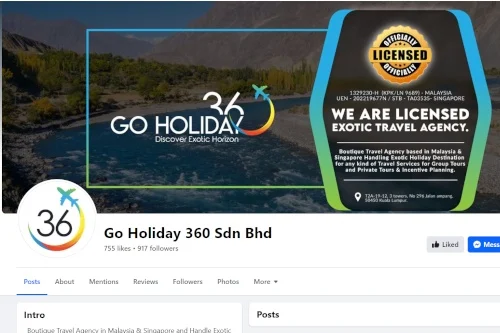
The cost and itinerary of a tour depend on its duration and what's included. We went on a tour organized by Go Holiday 360 Sdn Bhd, an all-inclusive package.
While some other companies offer cheaper packages, the quality and services may differ. During our tour, we stayed at some of the best hotels in Pakistan, like the Shigar Fort Hotel and all our meals were included. We were also on board a direct flight from Kuala Lumpur to Islamabad by Pakistan International Airlines, which took only 6 hours and 10 minutes. Although non-direct flight options are available, they involve a layover and transit, which can take an entire day.
4. Is it safe to visit Pakistan?

We only stayed in Pakistan for twelve days, visiting only Islamabad and the northern part of the country. Our guide informed us that this is the most popular tourist area and relatively safe compared to other regions.
We felt safe walking around and interacting with extremely friendly locals, often asking to take selfies with us. We did not notice any homeless people in the city.
However, we did notice that large hotels were guarded by security officers who carried guns. Some hotels even required us to X-ray our luggage before entering. This added layer of security provided by the hotels to their guests suggests that the area may not be completely safe.
5. Should I buy a local SIM card or use international roaming?
Since we traveled from Malaysia, we bought 30 days of international roaming from Digi in Pakistan. However, we found that the roaming service is only available in cities like Islamabad. Besides that, the Internet connection could often be disconnected, especially when traveling along the highway.
So, I wouldn't say that roaming is impractical while traveling to Pakistan, but it only works 10 to 20% of the time in Pakistan.
We were also considering purchasing a local SIM card. Our local guide advised us not to because different regions of Pakistan require different SIM cards. The best option is to use the Internet connection provided by the hotel. There may be some better options other than that, especially if you have some urgent matter, but that was the situation we encountered during our trip.
6. Can I use English to communicate in Pakistan?

English is widely used in Pakistan despite not being their native language.
English is also a second language in Pakistan and is a co-official language with Urdu. However, the main problem is that even though it is a compulsory subject in school, not everyone attends school. So, it is spoken by a small percentage of the population.
In Islamabad, we had no issues speaking English, but when we traveled to smaller cities up north, many people could only partially understand English. We had to rely on our local guide to communicate with them.
7. What type of food is expected to be served in Pakistan?

Most food served while traveling to Pakistan was similar to Indian food. A standard menu will generally start with a soup, for example, Pakistan's hot and sour chicken soup, which has been served several times. The other day, we were served Balay Soup, a mutton soup at Shigar Fort.
Then there will be the local salad for vegetables. Stir-fry vegetables are not common here and are only available upon special request.
Besides that, there will be a range of curry-like dishes, including potato, bean, mutton, and chicken. Pork is not served as Pakistan is a Muslim country.
Then there will be rice and rotis. Usually, there will be briyani rice and naans or chapati being served.
Some dishes we savored during our stay were chicken garlic boti, beef handi, mutton yakhni, chicken karahi, vegetable bhajia, beef keema, beef payya curry, aloo ki bhujia, and more.
We also noticed there is KFC and bought some to try at Islamabad. International cuisines are available in larger cities due to their diverse population.
8. Is the pipe water safe to drink?
In Pakistan, tap water is unsafe to drink as it is not treated. However, we are used to boiling water at home and, therefore, have no issues with it.
To ensure our safety, we primarily consumed mineral water while traveling and staying in hotels. Some hotels provided an electric kettle in the rooms so that we could boil the water ourselves. Besides, we asked for hot water when dining in restaurants as an extra precaution. Thanks to these measures, we encountered no stomach upset or diarrhea issues during our trip.
9. Are ladies required to wear hijab while traveling in Pakistan?
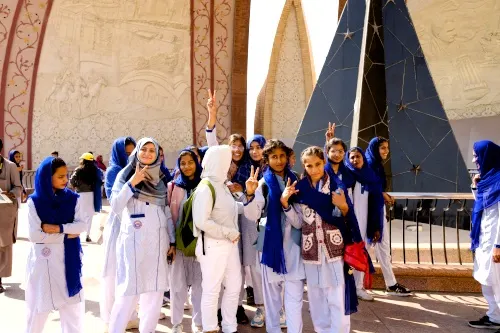
Female foreigners don't need to wear a hijab while traveling to Pakistan. Nevertheless, you should dress modestly and show respect towards the local culture. During our visit to Centaurus Shopping Mall in Islamabad, we noticed that many local ladies were doing their shopping without wearing hijabs. However, during our half-hour stay at Gilgit Bazaar, we hardly encountered women on the streets. And even when we did see them, they were usually fully covered. The dress code varies depending on the region you visit, so it's best to dress modestly as a visitor, which should be acceptable in most places.
10. Is there any specific medication required to bring to Pakistan?
In addition to the prescribed medication from your doctor, it's a good idea to pack some stomach cramps and anti-diarrhea pills while traveling to Pakistan, just in case. I also suggest bringing travel sickness pills, as the Karakoram Highway can be long and winding. Besides that, it is useful to bring headache medicine, as the Northern Pakistan tour includes visiting Khunjerab Pass, which is above 4700m. Due to the low oxygen level at high altitudes, some people may experience headaches and shortness of breath.
We have published a series of articles detailing our traveling to Pakistan. You can find the complete list of these articles here.
Some unique hotels in Pakistan that we stayed in during our visit.
As mentioned, here is a list of some unique hotels while traveling to Pakistan.
a. Serena Shigar Fort
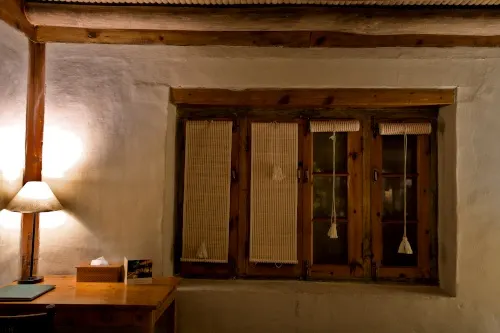
Serena Shigar Fort is a historic heritage hotel in Shigar. It boasts the breathtaking beauty of the Karakoram Mountain Range in Baltistan and centuries of folklore and legends. The hotel is a unique heritage boutique hotel built in the 400-year-old fort and the 17th-century Palace of the Raja of Shigar.
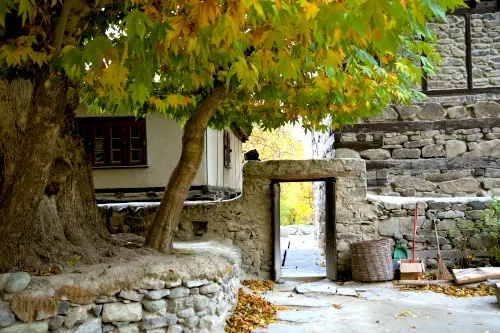
We arrived at Serena Shigar Fort late and headed to the restaurant for dinner. Despite our small group of twelve, the restaurant provided a full local cuisine buffet. The food was delicious, and we also had breakfast and lunch at the same restaurant the next day.
The hotel is a renovated fort, significantly different from other modern hotels. The architecture is mainly made of wood and bricks, giving a unique and rustic feel. We've captured some stunning photos of the rooms' interiors and the surrounding areas. The hotel invokes nostalgia, taking us back four hundred years to the era when the Raja resided here during his glory days.
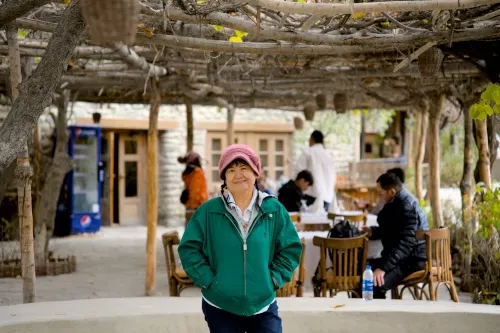
During our stay at the hotel, we discovered some hidden treasures. For instance, we stumbled upon a 450-year-old maple tree with a large hole we could climb into. Besides, the hotel had arranged a complimentary guided museum tour inside the fort.
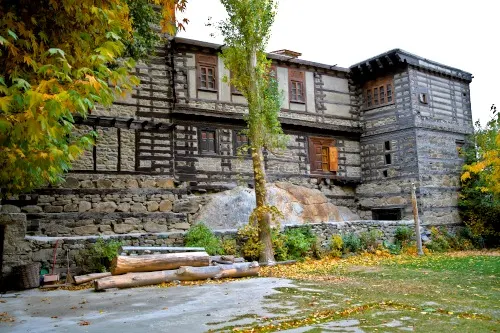
The hotel's surroundings were equally mesmerizing. A stream in front of the hotel eventually merged with the Shigar River. The Khilingrong Mosque has been there for over 400 years and is just in front of the hotel. We took a refreshing morning walk along the stream and enjoyed the serene atmosphere.
I am very impressed with this hotel. The only downside is its price, but it was not an issue for us as we were part of an all-inclusive tour group.
Serena Shigar Fort
Address: Serena Shigar Hotel, Shigar, Baltistan, Pakistan, Shigar, Gilgit-Baltistan 16300
Phone: +92 58154 67108
Website: https://www.serenahotels.com/shigar-fort
b. Shangrila Chilas Hotel
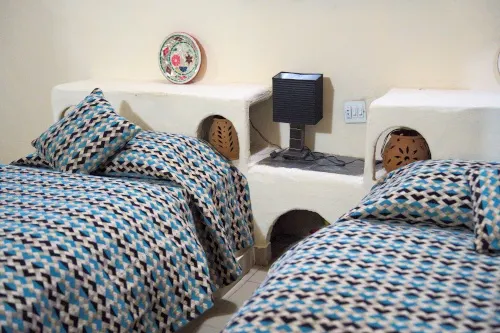
We stopped at Shangrila Hotel Chilas for lunch on the third day of our trip to Gilgit. The beautiful garden scenery in front of the Indus River caught our attention and mesmerized us.

Later, on our way back to Islamabad, we stayed at this hotel overnight at Chilas. The garden was even more beautiful during the golden hours before dark, and our group took advantage of the picturesque setting for photography, including some yoga poses.

The hotel's interior has a rustic design that sets it apart from standard hotels. Although the facilities were standard, the unique design of the rooms and decorations throughout the hotel made up for it. I was particularly impressed by the one-of-a-kind door lock.
Shangrila Chilas Hotel
Address: Karakoram Hwy, Chilās, Gilgit-Baltistan 14100
Phone: +92 316 1978742
Website: https://www.shangrilahotels.pk/
c. Dynasty Skardu
During our stay in Skardu, we chose to stay at a family-friendly resort called Dynasty Skardu.
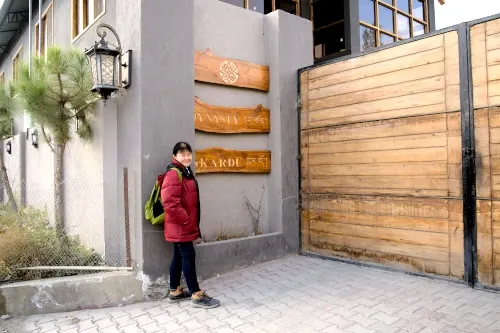
It offers many accommodations, from deluxe rooms to executive suites with spectacular snow-capped mountain views. The resort is not laid out like a typical hotel but consists of rows of two-story apartment-style buildings with individual rooms. While the rooms are pretty basic, they all have en suite bathrooms. The restaurant is located on the first floor of the main building where the reception is. We had our dinner and breakfast here the next day.
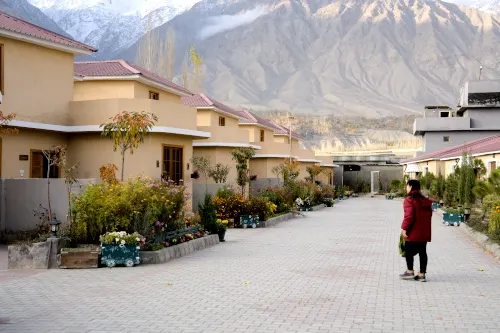
We encountered an issue with the internet connection, which was cut off every ten minutes and then reconnected. Since our roaming data was not working most of the time in Pakistan, we were still determining if it was a specific problem of the hotel or a general problem in the area.
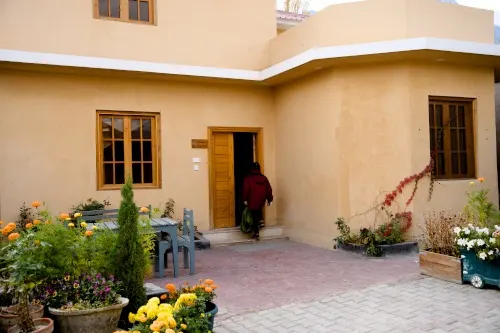
The magnificent view of the mountain-surrounded Dynasty Skardu made up for the average amenities and services. The view was so breathtaking that people would travel thousands of miles to glimpse these snow-capped mountains, but we were fortunate enough to admire the incredible view right at our doorstep.
Dynasty Skardu
Address: 411 Kushmora Road, Gayool, Skardu
Phone: +92 342 0000164
Website: https://www.facebook.com/DynastySkardu/
d. Hilltop Hotel
Hill Top is a family-owned hotel that was built in 1980. It is the oldest hotel in Karimabad, Hunza, offering a discreet retreat in the heart of the Himalayas. Our rooms come equipped with all the basic facilities of a 3-star hotel, including air conditioning, comfortable beds, in-room dining, clean bathrooms, hot/cold water, electricity backup, and daily housekeeping.
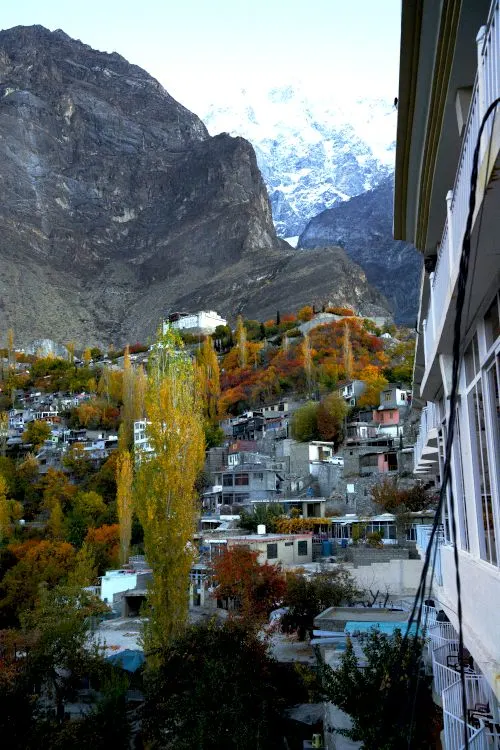
The view from the hotel, overlooking the majestic Rakaposhi Peak and the 900-year-old Baltit Fort, is breathtaking. The location is strategic: just a few minutes walk from the Karimad Bazaar and a 15-minute walk up to the Balti Fort.
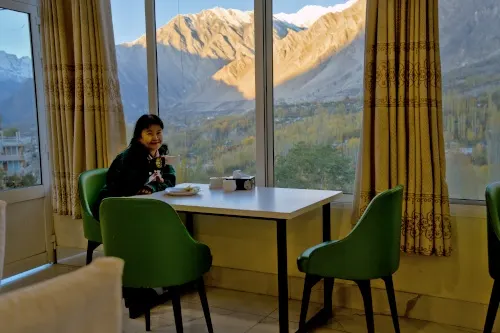
The unobstructed view is incredibly stunning during the golden hours in the morning and with the snow-capped mountain at night. For the best view, head to the rooftop.
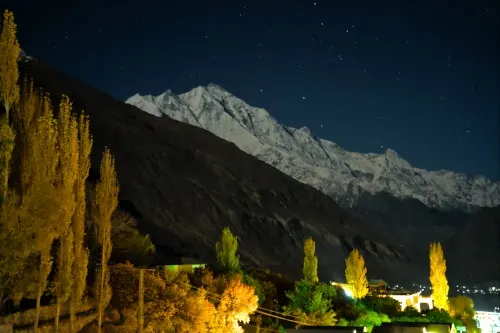
Hilltop Hotel
Address: Karim Abad Road, Hunza, Karimabad, 15700
Phone: +92 348 5814862
Website: https://hilltophunza.com/
e. Hunza Eagle’s Nest Hotel

We stayed at the Eagle's Nest Hotel in Duiker, Hunza, before returning to Islamabad. This three-star hotel offers a range of facilities, including a great restaurant on the ground floor and an open terrace with stunning views of the Hunza Valley and surrounding peaks such as Rakaposhi, Diran Peak, Golden Peak, Ultar Peak, and Lady Finger.

Its proximity to Duiker Hill sets this hotel apart. We witnessed the most incredible mountain views from the top of the hill during sunset. If you're looking for a breathtaking view of the mountains, the Eagle's Nest Hotel is the place to be.
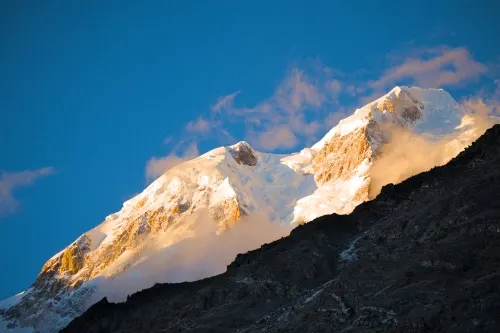
Hunza Eagle’s Nest Hotel
Duikar,Altit, District Hunza, Gilgit-Baltistan, Pakistan
Phone: +92-5813-457074
